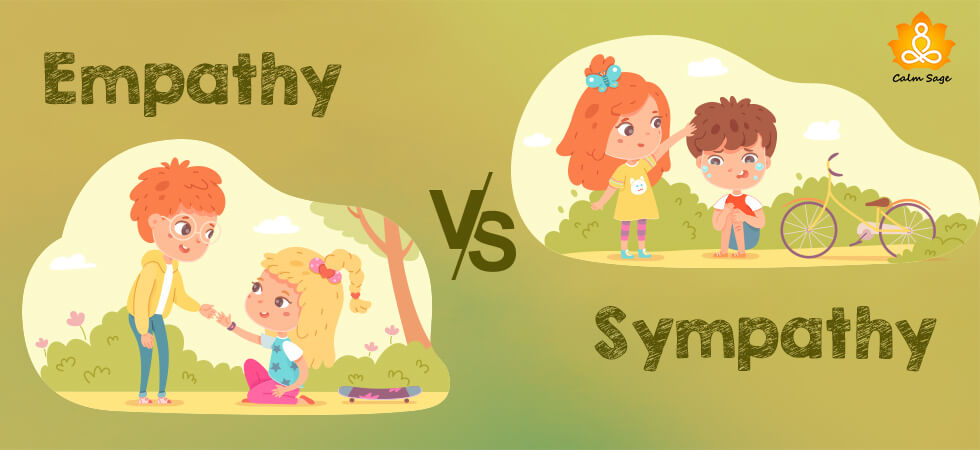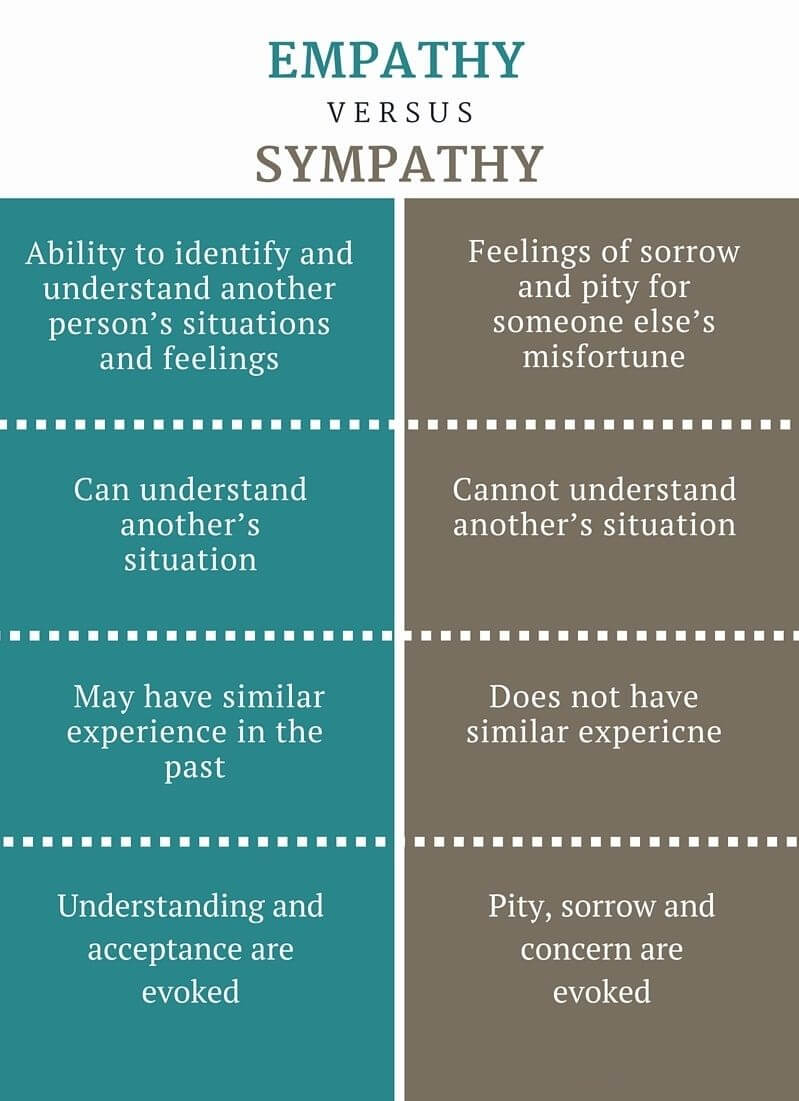Empathy vs Sympathy: What Are The Key Differences?

Usually used interchangeably, empathy and sympathy are two of the most important skills when it comes to building emotional intelligence and development.
While many people use these words synonymously, there are many differences between them that you may not be aware of. Empathy and sympathy are, and always have been, good traits to have as they offer emotional support to those who need it.
In this article, I’ll explain the key differences between empathy and sympathy, why empathy is a good trait, is sympathy better than empathy, and how you can nurture these skills further.
What Is Empathy?
Translated from German to English by psychologist Edward Titchener, empathy means the ability to identify and share the feelings and emotions of others. Empathy means “feeling into” and requires the ability to understand the sorrows of others from their point of view and share their emotions including distress.
Many a time, empathy and sympathy can be confused as synonyms, right alongside pity and compassion. Pity, on one hand, describes a minor understanding of a person’s distress and on the other hand, compassion shows a deeper understanding or empathy towards a person’s distress.
Sympathy and empathy lie somewhere between pity and compassion. Empathy plays an important role in forming and maintaining meaningful and compassionate relationships with others.
An empathetic person works well in a group setting and is more likely to form long-lasting relationships Such a person is also more likely to stand up against injustice than others.
[Related Read: Types Of Empathy You Need To Know]
What Is Sympathy?
The feeling when you express concern towards someone, often a term that expresses sorrow or pity, is what can be termed ‘sympathy’. Feeling sympathetic towards someone is good as you’re acknowledging their feelings and/or the situation they’re going through.
For example, you express your sorrow towards a family member’s passing – that is sympathy. Being sympathetic is saying that you understand others’ feelings, their extent, but you don’t feel deeply for their sorrows.
In simple words, sympathy is when you “feel with” the other but are still emotionally detached.
What is the Difference Between Empathy and Sympathy
When it comes to listing the differences between empathy and sympathy, the key difference is – emotions.

1. Empathy means experiencing other’s emotions and feelings as your own. Sympathy means understanding what others are going through but not being emotionally connected with the situation.
2. Another difference between these two traits is that empathy requires active listening while sympathy is about being offered unsolicited advice. Being empathetic means you’re willing to hear what others want to say. The feeling of being heard is what empathy gives.
3. Empathy never judges while sympathy involves some judgment. Offering sympathy means you’re understanding the situation of others from your perspective. Empathy is putting yourself in others’ shoes to understand their emotions and why they are feeling what they are.
4. Another key difference between empathy and sympathy is that sympathy is about feeling sorry or pity for someone, but that’s about it. Empathy is about helping the other person feel heard, their emotions validated, and their situation understood.
5. Being sympathetic means suppressing your emotions as well as others from yourself. Being empathetic means you acknowledge your emotions and those of others, no matter how painful they might be.
Which Is Better? Sympathy Or Empathy?
Whether you’re a sympathetic person or an empathetic person, it all depends on your personality traits, background, and your personal past experiences. Empathy is a deeper emotional trait than sympathy.
Empathy is about putting yourself in another’s shoes, recognizing their pain, taking their burdens, and coming up with solutions to help them cope. Empathy is doing more than just feeling sorry for another.
While both traits are important to have, typically, empathy is considered a better trait than sympathy. For some people, empathy comes naturally. However, empathy might be a little difficult to practice and nurture if you’re not an empathetic person by nature.
Remember that too much empathy can not be good for your emotional health. Too much empathy can leave you feeling emotionally drained, physically fatigued, and distressed.
It is important to remember that not all people are empathetic by nature. Some people may even struggle with a lack of empathy. This lack of empathy, sympathy, or compassion can result in problems maintaining relationships and regulating emotions.
With some help – professional and self-help – you can learn to build empathy.
Tips to Help You Build More Empathy:
With these ways, you can learn to build empathy easily:
1. Actively Listen To Others
One of the best ways to nurture empathy is to listen to others as they’re speaking. Focus on their words, their needs, and their feelings. Take a moment to understand what they’ve said. Repeat what they’ve said to make sure there is no misunderstanding.
2. Communicate With Others
More often than not, we form opinions about someone without knowing them truly. Communicate with others as much as possible. Getting to know them on a deeper emotional level can help you learn better about understanding emotions – yours and theirs.
3. Read A Lot
Reading is one of the most creative (and also therapeutic) ways to learn how to understand others’ emotions. When you read, you learn how to put yourself in other people’s shoes. This allows you to sympathize or empathize with characters stuck in similar situations as you.
4. Practice Self-Awareness
The best way to increase empathy can also be practicing self-awareness when it comes to emotions and feelings. Once you’re aware and connected with your emotions, it can become easier for you to understand and connect with others’ emotions.
No matter how many differences empathy and sympathy have, the bottom line is to ensure that you practice both these important traits. Emotions are important and are what make us human. Emotions help us stay connected with others.
I hope this article helped you understand the difference between empathy and sympathy. For more on empathy vs sympathy, you can write to us at info@calmsage.com or comment below your thoughts.
You can also follow us on our social media to stay updated on our content.
Be Kind! Take Care!




















